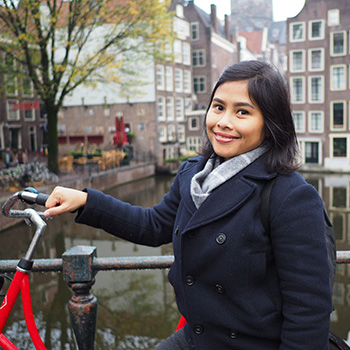Dual-Motive Complexity of Sustainable Investments: Exploring Individual Investors' Decision-Making P

Ida Ayu Agung Faradynawati, Division of Real Estate Business and Financial Systems, will defend her doctoral thesis on Thursday 20 November 2025.
What is the topic of your Doctoral Thesis?
My research explores how everyday people make decisions about sustainable investments. Unlike traditional investing, where the main goal is financial return, sustainable investing involves a dual motivation: earning money and supporting environmental, social and governance goals. This adds an extra layer of complexity, because investors have to balance financial information with sustainability values. I study how this dual-motive affects individuals’ understanding, information-seeking behavior, and choices when they invest in sustainable funds.
Why did you choose this topic?
I chose this topic because interest in sustainable investing has grown rapidly, yet many everyday investors still struggle to navigate it. While a majority say they want to invest sustainably, far fewer actually do, often because they feel they lack the knowledge or find the products confusing. Sustainable investments require people to understand both financial information and sustainability aspects, which can be challenging. I want to better understand these barriers so we can help support individuals in making informed investment choices that align with their values.
What are the most important results?
To make sustainable investment decisions, individuals need a mix of financial knowledge, sustainability knowledge, and sustainable finance knowledge. Confidence in their own understanding also plays an important role. What investors know influences whether they seek financial advice and how well they understand information about sustainable investment products. Better-informed investors are better equipped to compare options and make decisions aligned with their goals. Moreover, exposure to negative financial or sustainability news can increase perceived risks and affect investors’ willingness to choose sustainable funds. This shows that the information environment around investors matters just as much as their own knowledge.
Did you come across something unexpected during your thesis research?
Yes, in a very positive way! Although my background is in business studies, I discovered that my research connects deeply with consumer protection and financial law. Sustainable investing isn’t just about financial behavior, legal frameworks also play a key role. Thanks to my co-supervisor, who is a law professor, I even had the opportunity to contribute to a book chapter in financial law. This unexpected connection has been an exciting and enriching part of my research journey.
Who will benefit from your results? What kind the impact may it have on surrounding society?
The findings highlight that sustainability and sustainable finance literacy, in addition to financial literacy, play an important role in helping investors better understand sustainable mutual funds. This highlights the importance of developing focused educational initiatives that enhance investors’ understanding in all three areas. For financial institutions, my study suggests integrating both objective and subjective literacy measures to tailor advisory services, detect overconfidence or underconfidence among clients, and design engaging learning initiatives on financial and sustainable investment literacy. Policymakers can use these insights to develop clearer ESG disclosure standards and public financial education initiatives that include sustainability considerations. For society at large, the research contributes to more informed and confident investment decisions, greater trust in financial advisory services, and increased participation in sustainable investing, and eventually supporting the capital mobilization toward the achievement of Sustainable Development Goals.
What will you do next/where can one reach you?
I will continue working at KTH until spring 2026, so you can reach me at iaafa@kth.se . After that, I plan to explore postdoctoral opportunities in sustainable investments or consumer finance. My research interest focuses on how people make financial decisions when sustainability comes into play, an area I’m always excited to discuss and develop further. I am open to collaborations that bridge finance, behavioral science, and sustainability, or that explore how financial choices can drive positive social and environmental impact. And of course, I’m always up for a good conversation over fika. You can also find me on www.linkedin.com/in/idafaradynawati .
